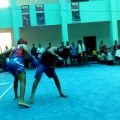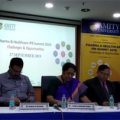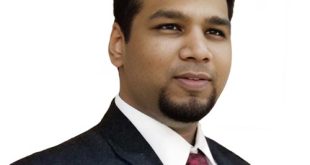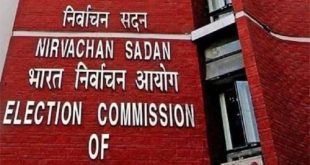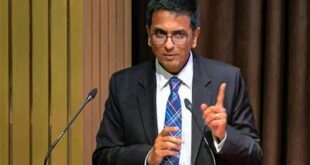Shri Ram Shaw
Newswave @ New Delhi
Women and girls with disabilities in India who survive sexual violence face high barriers to access the justice system, Human Rights Watch (HRW) said in a new report on April 03.
Five years ago, the government adopted significant legal reforms for sexual violence cases, but serious gaps remain in implementation, it added.
“Since 2013, India has made important legal reforms on sexual violence, but women and girls with disabilities still lack equal access to justice,” Nidhi Goyal, a disability rights activist and co-author of the report told. “Indian women and girls with disabilities should no longer remain the invisible victims of sexual violence,” she added.
The 61-page report, “Invisible Victims of Sexual Violence: Access to Justice for Women and Girls with Disabilities in India,” details the challenges many women and girls with disabilities face throughout the justice process, reporting abuse to the police, obtaining proper medical care, having complaints investigated, navigating the court system, and getting adequate compensation.
After the fatal gang rape case in Delhi in December, 2012, the Central government strengthened laws on sexual violence. The Criminal Law (Amendment) Act, 2013 ( the 2013 amendments) includes several provisions to safeguard the rights of women and girls with disabilities and facilitate their participation in investigative and judicial processes, Goyal further said.
“But, country’s criminal justice system has largely failed to implement the 2013 amendments, such as providing police and judicial trainings to create an enabling, supportive environment for survivors with disabilities. Some states have adopted good practices, but they are exceptions, not the norm,” she added.
“Women and girls who survive rape and other sexual violence often suffer humiliation at police staions and hospitals. Police are frequently unwilling to register their complaints, victims and witnesses receive little protection.
These obstacles to justice and dignity are compounded by inadequate health care, counselling, and legal support for victims during criminal trials”, said Lalitha Kumaramangalam, former chairperson, National Commission for Women.
For womwn and girls with disabilities, who face a higher risk of sexual violence, the challenges are even greater. Women with physical disabilities may find it more difficult top escape from violent situations. Those who are hearing impaired may not be able to call for help or easily communicate abuse.
Women and girls with intellectual or psychological disabilities may not know that non-consensual sexual actd are a crime and should be reported. Stigma related to their sexuality and disability compounds these challenges, she further added.
Need for action and implementation
“Government has taken important steps to reform the criminal justice system to include women and girls with disabilities, but our new research shows the need for action and implementation. The government should act promptly to ensure accomodations and other measures so that women and girls with disabilities are out of the shadows of justice,” Nidhi Goyal said.
However, Human Rights Watch has some key recommendations for the Central and State Governments as well.
The include : Properly implement laws and policies to protect rights in cases of sexual violence against women and girls with disabilities.
Ensure that police, judicial officers, medical officers and judges receive adequate training in the rights of survivors of sexual violence, including women and girls with disabilities. Police and the courts should have access to “special educators,” who can identify disability accurately and provide support or other accommodations.
Adopt and implement the Ministry of Health and Family Welfare Guidelines and Protocols for Medico-Legal Care for Survivors/Victims of Sexual Violence across all states and jurisdictions. Ensure that all medical professionals are trained in accordance with these guidelines.
Collect and disaggregate data on sexual and gender-based violence on the basis of gender, disability and age to ensure adequate services and inform government policies and programs to better address the needs of women and girls with disabilities.
Formulate a uniform scheme across all Indian states to provide compensation to victims of sexual violence, including women and girls with disabilities. Compensation awarded should consider the additional costs incurred and urgent needs of victims with disabilities.
Shweta Rawat, Chairperson, The Hans Foundation, Shantha Rau Barriga, Director, Disability Rights, Human Rights Watch, Shikha Silliman Bhattacharjee, co-auther, Human Rights Watch, Vrinda Grover, lawyer and human rights activist, and Amba Salelkar, lawyer, Equals Centre for Promotion of Social Justice also shared their thoughts at the Report Launch Event held @ India Habitat Centre.
 News Wave Waves of News
News Wave Waves of News


